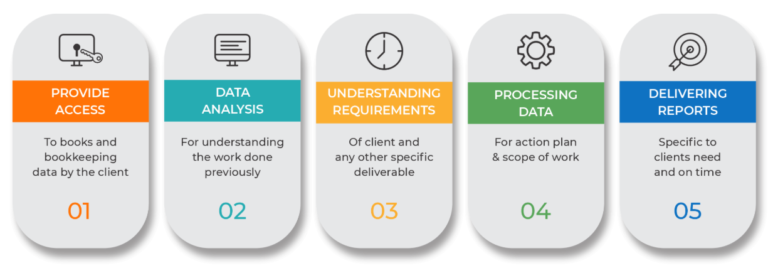Accounts Payable (AP) has traditionally been viewed as a cost center—a necessary but unglamorous part of finance focused on processing invoices and managing payments. For years, companies treated AP as an administrative function to be managed internally with minimal investment, often resulting in inefficiencies, errors, and missed opportunities for strategic impact.
However, the landscape is rapidly changing. Through the power of AP process outsourcing, organizations are transforming AP from a cost center into a strategic asset that drives operational efficiency, strengthens supplier relationships, and unlocks business value.
In this blog, we’ll explore why AP has long been underrated, how outsourcing changes the game, and what benefits companies gain when they view AP as a strategic lever rather than just an expense.
Why Has AP Been Seen as a Cost Center?
Accounts Payable is often categorized as a cost center because it typically doesn’t generate direct revenue. Instead, its focus is on processing supplier invoices, ensuring timely payments, and managing cash outflows. For many organizations, AP is perceived as:
-
A manual, repetitive process: Handling stacks of paper invoices, chasing approvals, and entering data manually have made AP labor-intensive and prone to error.
-
A compliance and risk function: AP teams are primarily focused on avoiding duplicate payments, fraud, and ensuring regulatory compliance.
-
A budget line item to minimize: Due to its back-office nature, AP departments often face budget cuts, limiting investment in technology and people.
As a result, AP was viewed more as a necessary overhead than a source of business value.
The Shift: Why AP Deserves to Be a Strategic Asset
Recent trends in digital transformation, process automation, and strategic finance have revealed that AP has untapped potential. When managed effectively, AP can:
-
Optimize cash flow: By controlling payment timing and leveraging early payment discounts, AP can improve working capital management.
-
Improve supplier relationships: Prompt, accurate payments help maintain supplier trust and may lead to better terms and collaboration.
-
Drive process efficiency: Streamlined AP reduces errors, speeds up processing times, and frees up finance teams to focus on higher-value activities.
-
Enhance data analytics: AP generates valuable spend data that can be analyzed for cost-saving opportunities and strategic sourcing decisions.
For AP to evolve into a strategic asset, organizations must rethink how they manage the function—and this is where outsourcing plays a pivotal role.
How AP Outsourcing Transforms the Function
Outsourcing AP means partnering with a specialized third-party provider to handle some or all aspects of the AP process, from invoice receipt and data capture to payment execution and reporting. This approach leverages the provider’s expertise, technology, and scalability to deliver superior results.
Here’s how outsourcing transforms AP:
1. Improved Process Efficiency and Accuracy
Outsourcing providers invest heavily in automation tools like Optical Character Recognition (OCR), Artificial Intelligence (AI), and robotic process automation (RPA) to eliminate manual data entry and reduce errors. Their dedicated teams follow standardized, best-in-class processes to ensure invoices are processed quickly and accurately.
This leads to faster invoice approval cycles, fewer payment delays, and improved compliance with company policies.
2. Cost Savings and Scalability
AP outsourcing typically reduces costs by streamlining processes and eliminating the need to maintain large in-house teams or invest heavily in technology. Providers operate at scale and pass on efficiency gains to clients.
Additionally, outsourcing allows businesses to easily scale AP operations up or down based on invoice volume fluctuations, such as during seasonal peaks or growth phases.
3. Enhanced Cash Flow Management
Outsourcing partners often provide better visibility and control over payment schedules, enabling companies to optimize cash outflows. They can implement strategies like dynamic discounting to capture early payment discounts without straining supplier relationships.
With real-time reporting and analytics, finance leaders can make more informed decisions about working capital.
4. Focus on Strategic Initiatives
By delegating routine tasks to an external partner, internal finance teams can shift their focus to strategic activities such as spend analysis, supplier negotiations, risk management, and financial planning.
This shift elevates the role of finance from transactional to advisory and strategic, contributing directly to business growth.
Real-World Impact: Case Studies
Many organizations that have outsourced AP report transformative results:
-
A mid-sized manufacturing company reduced invoice processing costs by 40% and shortened cycle times by 50% within six months of outsourcing, enabling the CFO to redeploy resources toward strategic sourcing.
-
A global retail chain improved supplier satisfaction scores by 30% due to timely payments and enhanced communication managed by the outsourcing partner.
-
A financial services firm gained real-time visibility into spend data, allowing it to identify $2 million in cost-saving opportunities through supplier renegotiations.
These examples highlight how outsourcing AP does more than reduce costs—it elevates the entire finance function.
Key Considerations for Successful AP Outsourcing
To realize the full benefits of outsourcing, companies should:
-
Choose the right partner: Look for providers with industry experience, robust technology, and proven security measures.
-
Define clear SLAs and KPIs: Establish measurable goals for accuracy, turnaround time, and cost savings.
-
Maintain collaboration: Ensure close communication between internal teams and the outsourcing provider to manage exceptions and continuously improve processes.
-
Invest in change management: Prepare employees for the transition and reassign internal resources to higher-value tasks.
Conclusion: A Strategic Future for AP
AP process outsourcing is no longer just a cost-saving tactic—it’s a strategic enabler that transforms accounts payable from a back-office burden into a value-driving asset. By leveraging technology, expertise, and innovative partnerships, businesses can optimize cash flow, improve supplier relationships, and free up finance teams to contribute more meaningfully to organizational success.
In a competitive market where agility and operational excellence matter, outsourcing AP is a smart move that helps finance leaders elevate their role from cost controller to strategic partner.




